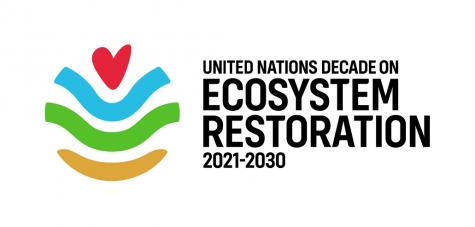
The UN Decade on Ecosystem Restoration is a rallying call for the protection and revival of ecosystems all around the world, for the benefit of people and nature. It aims to halt the degradation of ecosystems, and restore them to achieve global goals. Only with healthy ecosystems can we enhance people’s livelihoods, counteract climate change, and stop the collapse of biodiversity.
The UN Decade runs from 2021 through 2030, which is also the deadline for the Sustainable Development Goals and the timeline scientists have identified as the last chance to prevent catastrophic climate change.
The United Nations General Assembly has proclaimed the UN Decade following a proposal for action by over 70 countries from all latitudes. View the resolution here.
Led by the United Nations Environment Programme and the Food and Agriculture Organization of the United Nations, The UN Decade is building a strong, broad-based global movement to ramp up restoration and put the world on track for a sustainable future. That will include building political momentum for restoration as well as thousands of initiatives on the ground.
Forests will be at the heart of the UN Decade on Ecosystem Restoration. Globally, deforestation continues at an alarming rate: the most recent report from the Food and Agriculture Organization of the United Nations (FAO) estimates that the world has lost 420 million hectares of forest to other land uses since 1990, with devastating consequences for our health, food security, water availability, and biodiversity. The Decade is our chance to turn the situation around.
Together, the United Nations Economic Commission for Europe (UNECE) and Food and Agriculture Organization of the United Nations (FAO) are contributing to the Decade through:
Supporting countries in the UNECE region to restore degraded forest landscapes
Forest loss and degradation aggravate problems related to food and livelihoods, clean water, fresh air, and the climate. Degraded landscapes are more vulnerable to natural disasters and extreme weather conditions (heavy rainfall, floods, and landslides). Restoring forest landscapes means enhancing landscapes in ways that ensure lasting benefits. These include better local climate regulation, improved flood and erosion control, increased variety and availability of food and non-food products, and economic opportunities for local communities.
Through its work on forest landscape restoration, the Joint UNECE/FAO Forestry and Timber Section supports countries to formulate and implement their FLR strategies, and integrate these into their action plans for sustainable forest management. The work of the Joint Section in this area has resulted in 7 countries of Central Asia and the Caucasus pledging to restore 3 million hectares of degraded land.
More restoration pledges are expected from Eastern and South-East European countries at the upcoming Ministerial Meeting on forest landscape restoration on 12 October 2021.
Globally, 93% of all cities will face significant disruptions caused by climate change (CDP, 2021). This includes water scarcity, urban heat island effect, increased food insecurity, and greater vulnerability to natural and climate-related disasters.
Against this background, nature-based solutions in cities offer a cost-effective way for increasing the resilience of urban systems. Urban and peri-urban forests (urban forest ecosystems) are one such solution. They reduce high temperatures, filter water and pollutants from the air, provide a source of nutritious and readily available food, and make cities more resilient and liveable.
Through its global campaign, "Trees in Cities Challenge", UNECE supports cities around the world to integrate urban forestry into their resilience plans, and take immediate action to expand their canopy cover.
Since September 2019, over 20 cities from 16 countries have pledged to expand their tree cover and improve the management of their urban trees and forests, and to plant about 11 million trees.
Boreal forests cover almost a third of the global forest area and in combination with its soils and peatlands form the largest terrestrial storage of CO2. Protecting, restoring and preserving these precious ecosystems will be key to our efforts to mitigate climate change and meet the objectives of the Paris Agreement.
Through its Team of Specialists on Boreal Forests, UNECE/FAO Forestry and Timber Section works to foster a science/policy dialogue on the contribution of these ecosystems to climate change mitigation.

